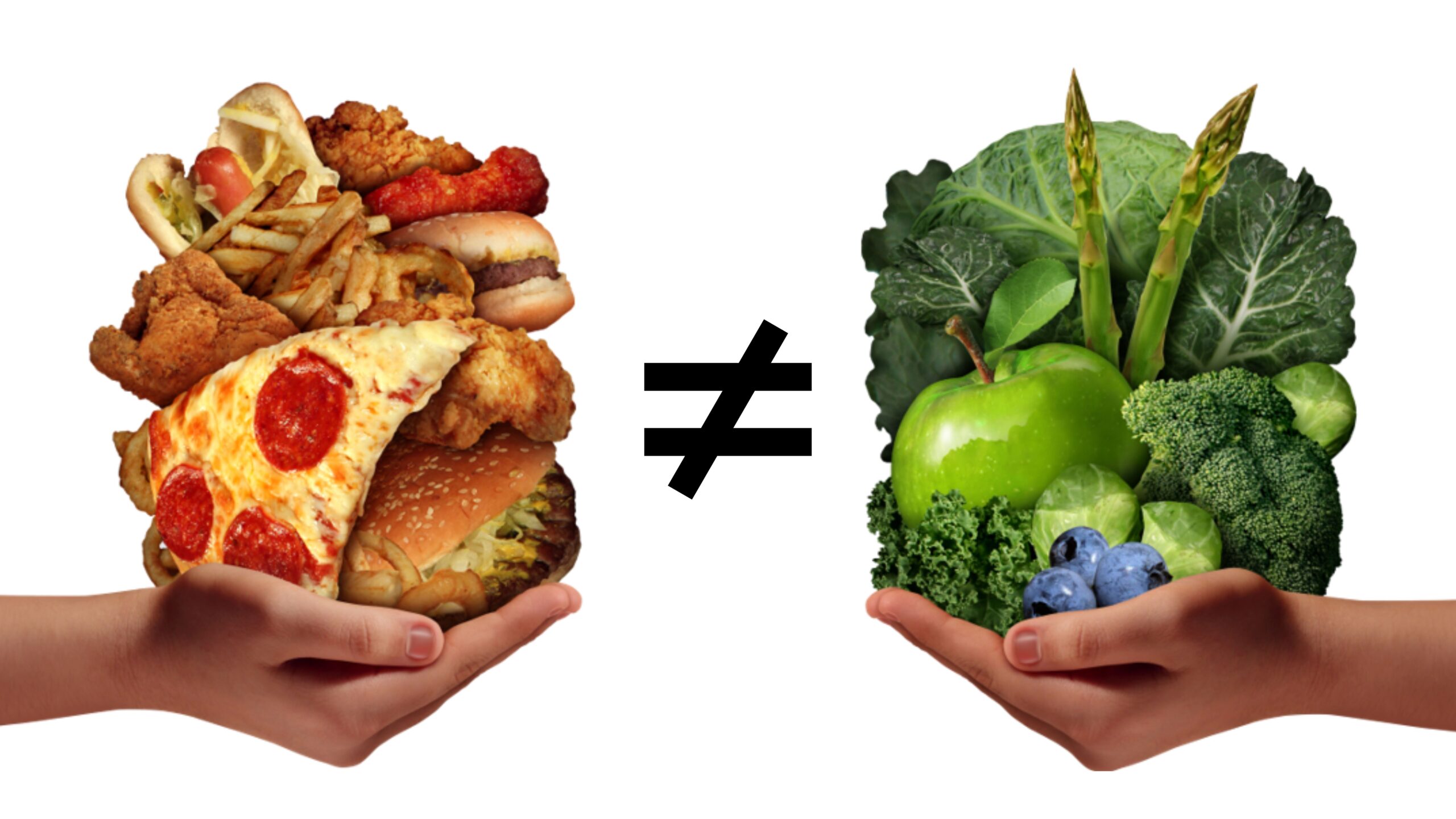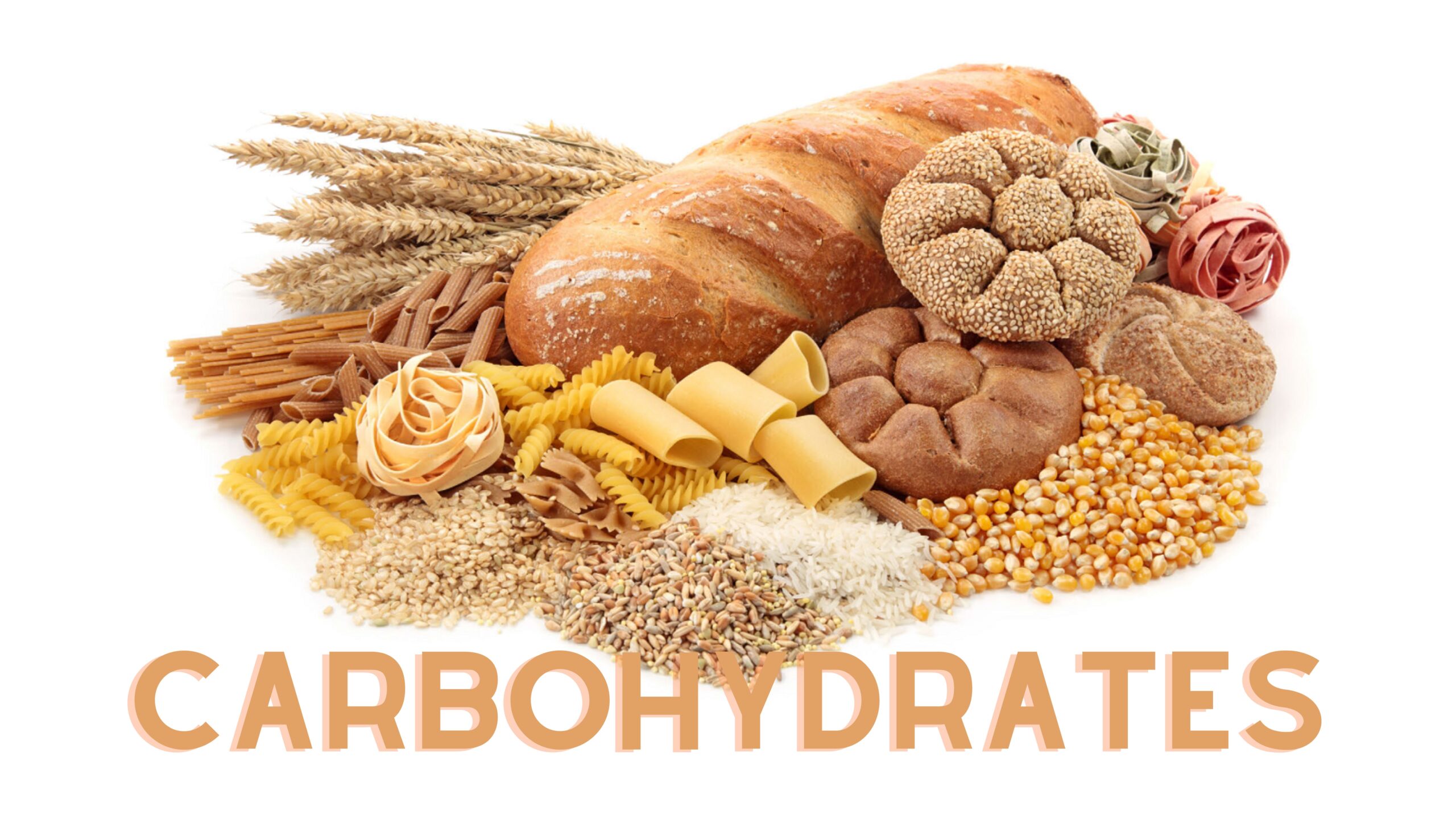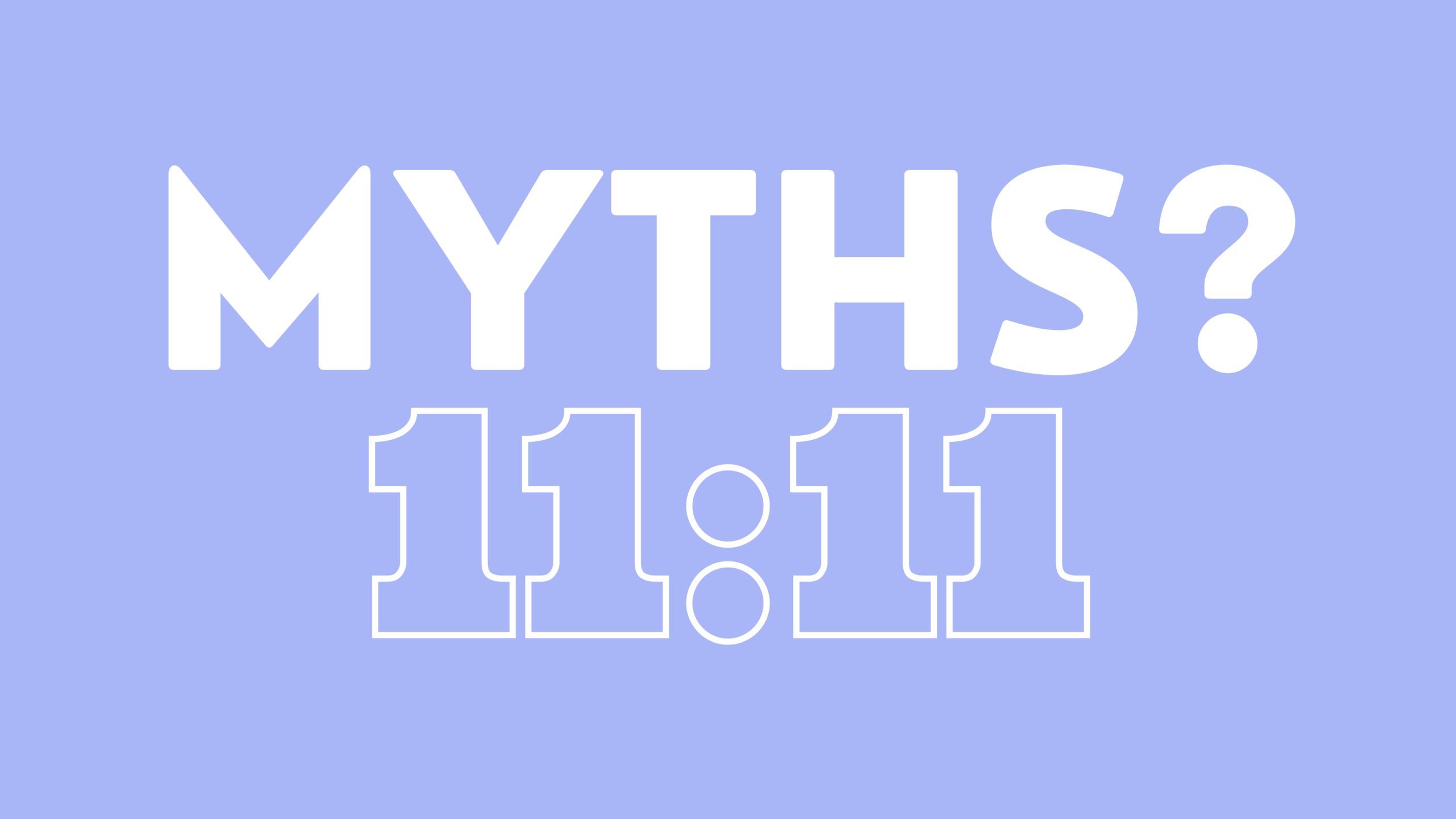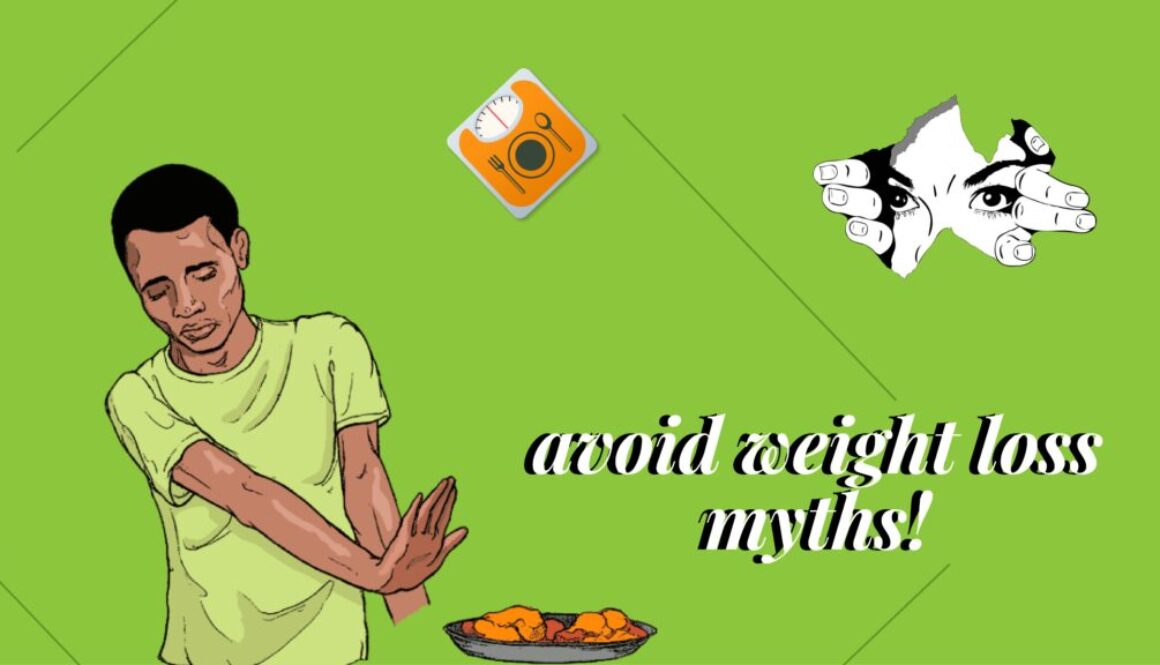13 Common Weight Loss Myths: How to Avoid Them?
“Unlock Sustainable Weight Loss: Debunking Myths & Proven Strategies. Discover the truth about weight loss myths and avoid the traps of misconceptions.”
Introduction
In a world where appearances are often equated with health and well-being, the pursuit of weight loss has become a paramount concern for many.
The desire to shed pounds and achieve physical fitness is not only driven by aesthetic ideals but also by the genuine desire to lead healthier lives.
However, amidst this noble quest, there exists a landscape riddled with confusion and misconceptions that can derail even the most well-intentioned efforts.
Weight loss has taken center stage in today’s society. The cultural emphasis on body image, coupled with the rising concerns about obesity-related health issues, has intensified the scrutiny individuals place on their own bodies.
As a result, the weight loss industry has flourished, offering a plethora of solutions, many of which promise quick fixes and miraculous transformations.
Unfortunately, this influx of information has also given rise to an epidemic of misinformation.
Weight loss myths, often perpetuated by well-intentioned friends, glossy magazines, and social media influencers, have created a fog of confusion around the topic.
These myths can lead individuals down paths that are not only ineffective but potentially harmful, jeopardizing both their physical and mental well-being.
In this comprehensive guide, we will set out to navigate through this fog of misinformation and debunk some of the most common weight loss myths that have infiltrated our understanding.
We will draw upon scientific research, expert opinions, and practical insights to shed light on these misconceptions.
By the end of this journey, you will be armed with knowledge that will empower you to make informed decisions on your weight loss journey, avoiding the pitfalls of false promises and quick fixes.
So, fasten your seatbelt as we embark on a journey to uncover the truth behind common weight loss myths and equip ourselves with the tools needed to achieve sustainable, healthy, and effective weight management.
Let’s begin our exploration of the world of weight loss by first addressing the myth that has led many astray: “Myth #1: Crash Diets are Effective.”
Disclosure
Before delving further into the content, it’s essential to establish a foundation of clarity and transparency.
It’s worth noting that this post has been enriched with affiliate links, which serve as a means to sustain the quality of this platform.
These links come with a distinct advantage – they grant me a modest commission, a portion that comes directly from the seller. These commissions are not any additional costs on your end.
Intriguingly, some of these links also offer you a noteworthy benefit: exclusive discounts that are accessible through these very channels. It’s a win-win scenario.
By clicking and making purchases via these links, you extend your support toward the continuous upkeep and enhancement of this blog.
Your actions foster the creation of genuine, insightful content that’s dedicated to your enrichment.
It’s imperative to emphasize that I find genuine satisfaction in endorsing tools and resources that I hold dear, employ regularly, and have personally vetted.
This ensures that the content I present is not only reliable but also backed by firsthand experience.
As you immerse yourself in the post, my sincere hope is that it serves you in meaningful ways. May it contribute to your knowledge reservoir or introduce you to new insights.
Your commitment is genuinely appreciated.
Wishing you an enlightening reading experience ahead!

I. Myth #1: Crash Diets Are Effective
In the quest for rapid results, crash diets have emerged as a seemingly tempting solution. The myth that surrounds crash diets is that they can lead to sustainable weight loss.
These diets often promise astonishing transformations in a matter of days or weeks, alluring individuals with the hope of fitting into that special dress or achieving their dream physique for an upcoming event.
However, it’s essential to understand the reality behind this myth.
Crash diets are characterized by extreme calorie restriction and drastic changes in eating habits.
They typically involve severely limiting food groups, such as carbohydrates or fats, and dramatically reducing overall calorie intake.
The belief is that by drastically cutting calories, the body will burn fat at an accelerated rate, resulting in rapid weight loss.
While crash diets may indeed produce initial weight loss, they come at a steep cost, and their promises of sustainability are, regrettably, far from the truth.
Here’s why crash diets should be viewed as a last resort, if at all:
Muscle Loss:
One of the serious consequences of crash dieting is the loss of lean muscle mass. The body, deprived of essential nutrients and calories, begins to break down muscle tissue for energy.
This not only hampers metabolism but also leads to a less toned appearance, which is often counter to the desired outcome.
Nutrient Deficiencies:
Crash diets typically lack essential nutrients, vitamins, and minerals necessary for overall health. Such deficiencies can result in fatigue, weakness, hair loss, and other adverse health effects.
Slower Metabolism:
The body’s metabolism adapts to extreme calorie restriction by slowing down to conserve energy.
This adaptive response makes it harder to maintain weight loss in the long term and can lead to rapid weight regain once regular eating patterns are summarized.
Nutrition experts, dietitians, and medical professionals overwhelmingly discourage crash diets.
The Academy of Nutrition and Dietetics, for instance, stresses the importance of gradual, sustainable changes to achieve and maintain a healthy weight.
Dr. Sarah Johnson, a renowned nutritionist, notes, “Crash diets are like a sprint – you might see short-term gains, but the finish line is often nowhere near your long-term goals.
Sustainable weight loss requires a balanced, nutritious diet that supports overall health and well-being.”
Furthermore, a study published in the Journal of the American College of Nutrition found that individuals who adopted crash diets were more likely to experience regaining the lost weight, often with additional pounds, compared to those who made gradual, sustainable lifestyle changes.
In conclusion, the myth that crash diets lead to sustainable weight loss is nothing more than a mirage in the desert of weight management.
While they may offer temporary results, they come with a host of negative consequences that can undermine your health and long-term goals.
Instead, focus on making gradual, healthy changes to your diet and lifestyle, and you’ll be on a path to sustainable and lasting weight management.

II. Myth #2: All Calories Are Equal
Addressing the Misconception of Caloric Equivalence
A pervasive myth in the realm of weight loss is the belief that all calories are created equal.
This oversimplified idea suggests that weight management is solely a matter of calories in versus calories out.
In other words, it implies that as long as you consume fewer calories than you burn, it doesn’t matter where those calories come from.
However, this notion neglects a crucial aspect of nutrition and weight management.
The Importance of Quality Calories and Macronutrients
The reality is that not all calories are created equal. The source of calories plays a significant role in your overall health and your ability to achieve sustainable weight loss.
To debunk this myth, it’s essential to consider the concept of “quality calories” and the role of macronutrients.
Quality Calories:
Quality calories are those that come from nutrient-dense foods. These foods are rich in essential vitamins, minerals, fiber, and antioxidants. They are somehow the opposite of empty calories.
They provide not only energy but also the building blocks your body needs for proper functioning. Examples of quality calorie sources include fruits, vegetables, whole grains, lean proteins, and healthy fats.
Macronutrients (Carbohydrates, Proteins, and Fats):
Each macronutrient has a unique impact on your body.
Carbohydrates provide energy, proteins support muscle maintenance and growth, and fats are essential for various bodily functions.
The balance and quality of these macronutrients in your diet can significantly influence your weight and overall health.
Examples of Healthy vs. Unhealthy Calorie Sources
Let’s explore this concept further by comparing two scenarios:
Scenario 1: 500 calories from a fast-food burger
This meal consists of primarily refined carbohydrates, unhealthy fats, and minimal nutrients.
It provides a quick energy spike but lacks the necessary nutrients to sustain long-term energy levels.
The high-calorie density and low nutrient density make it an unhealthy calorie source.
Scenario 2: 500 calories from a balanced meal
This meal includes lean protein, whole grains, vegetables, and healthy fats.
It provides sustained energy due to the balanced macronutrient composition.
The abundance of vitamins, minerals, and fiber supports overall health and well-being.
These scenarios highlight the stark contrast between calorie sources. Consuming 500 calories of nutrient-poor fast food is not equivalent to consuming 500 calories from a well-balanced, nutrient-rich meal.
The latter not only nourishes your body but also helps you feel satisfied and satiated, reducing the likelihood of overeating.
In essence, the myth that all calories are equal fails to consider the profound impact of food quality on your health and weight management.
To achieve lasting results, focus on a diet rich in quality calories from whole, minimally processed foods, and pay attention to the balance of macronutrients in your meals.
By doing so, you’ll be taking a significant step towards not only shedding excess pounds but also nurturing your overall health.

III. Myth #3: Cardio Is the Only Way to Lose Weight
The Belief in Cardio as the Sole Effective Exercise for Weight Loss
For years, the prevailing belief in the world of fitness and weight loss has been that cardio exercises are the be-all and end-all for shedding excess pounds.
The myth suggests that engaging in cardiovascular exercises, such as running, cycling, or swimming, is the only effective way to achieve weight loss.
However, this myth oversimplifies the complex relationship between exercise and weight management.
The Concept of Resistance Training and its Role in Weight Management
While cardio exercises undoubtedly have their merits, a well-rounded approach to exercise includes a crucial element that often goes overlooked: resistance training.
Resistance training involves activities like lifting weights, using resistance bands, or performing bodyweight exercises. These exercises focus on building and toning muscle.
The myth that cardio alone is sufficient for weight loss ignores the vital role that resistance training plays. Resistance training contributes to weight management in several ways:
Muscle Growth:
Resistance training stimulates the growth of lean muscle tissue. Unlike fat, muscle is metabolically active, meaning it burns calories even when you’re at rest. The more muscle you have, the higher your remaining metabolic rate, which can help in weight loss.
Improved Metabolism: As you build muscle through resistance training, your metabolism becomes more efficient at burning calories. This can lead to increased calorie expenditure both during and after your workouts.
Body Composition:
Cardio may help you lose weight, but it doesn’t necessarily reshape your body. Resistance training can help you achieve a more toned and sculpted physique by targeting specific muscle groups.
The Benefits of a Balanced Exercise Routine
The key to effective and sustainable weight management lies in balance. Relying solely on cardio or resistance training neglects the potential benefits of the other.
A balanced exercise routine that includes both cardio and resistance training offers several advantages:
Weight Loss:
Cardiovascular exercises help burn calories and create a calorie deficit necessary for weight loss.
Muscle Preservation:
Resistance training preserves and builds lean muscle mass, which is essential for long-term weight management.
Metabolic Health:
Both forms of exercise contribute to improved cardiovascular health, reduced risk of chronic diseases, and better overall well-being.
Variety and Motivation:
Combining different types of workouts keeps things interesting and helps prevent exercise plateaus. It also promotes motivation and adherence to your fitness routine.
In conclusion, the myth that cardio is the sole effective exercise for weight loss is a limited perspective on fitness.
While cardio has its place in weight management, incorporating resistance training into your routine can be equally, if not more, beneficial.
A balanced exercise regimen that combines both forms of exercise not only promotes weight loss but also enhances your overall health and helps you achieve the body you desire.
So, don’t limit yourself to just one type of workout; embrace the power of a comprehensive fitness plan.

IV. Myth #4: Skipping Meals Helps You Lose Weight
Addressing the Myth of Skipping Meals for Weight Loss
One persistent myth in the world of dieting is the belief that skipping meals or fasting excessively is an effective strategy for weight loss.
This myth often gains traction because it seems logical: if you eat less frequently, you’ll consume fewer calories, right?
While there is a grain of truth in calorie reduction, the consequences of skipping meals are far from beneficial when it comes to sustainable weight loss.
Explaining How Skipping Meals Can Have Detrimental Effects on Metabolism and Overall Health
Skipping meals may result in initial weight loss, but it’s a strategy fraught with potential pitfalls and adverse effects on your metabolism and overall health.
Metabolic Slowdown:
When you skip meals, your body interprets this as a state of food scarcity and conserves energy.
As a result, your metabolism slows down to preserve calories, making it even harder to lose weight in the long run.
Blood Sugar Fluctuations:
Skipping meals can lead to erratic blood sugar levels, causing energy crashes and increased cravings for unhealthy, high-calorie foods. This can result in overeating when you finally do consume a meal.
Muscle Loss:
Skipping meals often leads to muscle breakdown for energy, especially if you’re not consuming enough protein.
The loss of muscle mass can decrease your metabolic rate and make it more challenging to maintain weight loss.
Nutrient Deficiency:
When you skip meals, you miss out on essential nutrients, vitamins, and minerals that your body needs for proper functioning. Over time, this can lead to nutrient deficiencies and health issues.
Healthier Alternatives for Meal Timing and Proportion Control Suggestions
Rather than resorting to meal skipping, there are healthier alternatives to consider for meal timing and portion control:
Regular, Balanced Meals:
Aim to eat regular, balanced meals throughout the day. Include a mix of lean proteins, whole grains, vegetables, and healthy fats to keep your metabolism active and provide sustained energy.
Smaller, More Frequent Meals:
If you prefer eating more frequently, opt for smaller, nutrient-dense meals and snacks. This approach can help maintain stable blood sugar levels and curb excessive hunger.
Mindful Eating:
Practice mindful eating by paying attention to your body’s hunger and fullness cues. This can help prevent overeating and promote better portion control.
Portion Awareness:
Be mindful of portion sizes, especially when dining out. Share larger entrees or take leftovers home to avoid consuming excessive calories in one sitting.
Hydration:
Staying well-hydrated is essential for healthy metabolism. Sometimes, feelings of hunger are actually signs of thirst. Drink water throughout the day to help manage your appetite.
In conclusion, the myth that skipping meals can help in weight loss is a misguided approach that can have detrimental effects on your metabolism and overall health.
Instead, focus on balanced, regular meals, portion control, and mindful eating practices to support sustainable weight management.
Remember that healthy weight loss should be about nourishing your body, not depriving it.

V. Myth #5: Supplements Are the Key to Weight Loss
The Misconception of Weight Loss Supplements as a Magic Solution
In the quest for quick and effortless weight loss, a persistent myth that has gained traction is the belief that weight loss supplements are a magical solution.
These supplements are often marketed as a shortcut to shedding pounds, promising rapid results with little to no effort.
However, the reality is far more complex, and the idea of supplements as a weight loss panacea is a misconception worth dispelling.
Mentioning the Potential Risks and Side Effects of Weight Loss Supplements
Weight loss supplements, including pills, powders, and teas, may contain a variety of ingredients, some of which can pose health risks.
While there are legitimate dietary supplements on the market, many others are poorly regulated, and their safety and effectiveness are questionable.
Common risks and side effects associated with weight loss supplements include:
Adverse Health Effects:
Some supplements may lead to adverse health effects such as increased heart rate, high blood pressure, digestive problems, and even liver damage.
These side effects can be severe and have long-lasting consequences.
Ineffectiveness:
The vast majority of weight loss supplements do not live up to their extravagant claims.
While some may cause temporary water weight loss or mild appetite suppression, the effects are often short-lived and not lasting.
Lack of Regulation:
The supplement industry is not as closely regulated as pharmaceuticals. This lack of oversight can result in products that are contaminated, mislabeled, or ineffective.
Dependency:
Relying on supplements for weight loss can create a dependency and prevent individuals from adopting healthy, sustainable lifestyle changes.
Emphasizing the Importance of a Balanced Diet and Lifestyle Over Supplements
It’s crucial to understand that no supplement can replace the foundation of a healthy lifestyle, which includes a balanced diet and regular physical activity.
Here are some key points to remember:
Balanced Diet:
Weight loss is fundamentally tied to the calories you consume and burn. A balanced diet that emphasizes whole foods, portion control, and mindful eating is the cornerstone of healthy and sustainable weight management.
Physical Activity:
Regular exercise not only helps burn calories but also promotes overall health, including cardiovascular fitness and muscle development.
Aim for a combination of cardiovascular and strength-training exercises.
Lifestyle Factors:
Adequate sleep, stress management, and hydration are all critical aspects of a healthy lifestyle that can impact weight and well-being.
Consult a Healthcare Professional:
If you’re considering using supplements for weight loss, consult with a healthcare professional or registered dietitian.
They can provide guidance tailored to your specific needs and help you make informed choices.
In conclusion, the myth that weight loss supplements are the key to effortless weight loss is a dangerous misconception.
These supplements come with potential risks and side effects and often fail to deliver on their promises.
Instead, prioritize a balanced diet, regular physical activity, and a healthy lifestyle to achieve and maintain a healthy weight.
Remember that there are no shortcuts to sustainable and lasting weight management.

VI. Myth #6: You Must Starve Yourself to Lose Weight
Addressing the Belief in Extreme Calorie Restriction for Weight Loss
One of the most detrimental myths surrounding weight loss is the notion that extreme calorie restriction, often referred to as “starvation diets,” is a necessary path to shedding pounds.
This myth stems from the simplistic idea that consuming as few calories as possible will lead to rapid and effective weight loss.
However, the reality of starvation diets is far from what this myth suggests.
Explanation of How Starvation Diets Can Lead to Muscle Loss and Nutrient Deficiencies
Starving yourself or drastically reducing calorie intake is not a sustainable or healthy approach to weight loss. Here’s why:
Muscle Loss:
When you severely restrict calories, your body resorts to breaking down muscle tissue for energy.
This muscle loss not only affects your physical strength and appearance but also hampers your metabolism.
The less muscle you have, the slower your metabolism, making it increasingly difficult to lose weight.
Nutrient Deficiencies:
Extreme calorie restriction often leads to severe nutrient deficiencies.
When you don’t provide your body with the essential vitamins, minerals, and nutrients it needs, you may experience a range of health problems, including fatigue, weakened immune function, and bone density loss.
Metabolic Slowdown:
Prolonged calorie deprivation triggers a metabolic slowdown as your body tries to conserve energy. This can lead to a plateau in weight loss and make it challenging to continue making progress.
Psychological Effects:
Starvation diets can take a toll on your mental health. Constant hunger, mood swings, and an obsession with food can lead to a negative relationship with eating and a higher likelihood of binge eating or disordered eating patterns.
Tips on Achieving a Sustainable and Healthy Calorie Deficit
Instead of resorting to extreme calorie restriction, focus on achieving a sustainable and healthy calorie deficit:
Calculate Your Needs:
Determine your daily calorie needs based on your age, gender, activity level, and weight loss goals.
Aim for a moderate calorie deficit, typically 250-500 calories per day, which can lead to gradual, sustainable weight loss.
Prioritize Nutrient-Dense Foods:
Choose whole, nutrient-dense foods that provide essential nutrients without excessive calories. These foods include fruits, vegetables, lean proteins, whole grains, and healthy fats.
Eat Regular Meals:
Don’t skip meals, and aim for a balanced intake of calories throughout the day. This helps maintain steady energy levels and reduces the likelihood of overeating later on.
Practice Portion Control:
Be mindful of portion sizes to avoid overconsumption. Consider using smaller plates and measuring your food to help with portion control.
Monitor Your Progress:
Keep track of your food intake and physical activity to ensure you’re maintaining a calorie deficit. Tools like food diaries or apps can be helpful for this purpose.
Seek Professional Guidance:
Consult with a registered dietitian or healthcare professional to create a personalized and sustainable weight loss plan that aligns with your unique needs and goals.
In conclusion, the myth that extreme calorie restriction is necessary for weight loss is not only ineffective but also detrimental to your health.
Instead, focus on achieving a sustainable and healthy calorie deficit by making informed dietary choices and prioritizing nutrient-dense foods.
Sustainable weight loss is about nourishing your body and making lasting lifestyle changes, not subjecting yourself to deprivation and starvation diets.

VII. Myth #7: Weight Loss is Only About Diet and Exercise
The Myth of Weight Loss Solely Depending on Diet and Exercise
One prevalent misconception that often overshadows the complexity of weight management is the belief that it revolves solely around diet and exercise.
While these two factors undoubtedly play critical roles in achieving and maintaining a healthy weight, they represent just a fraction of the larger picture.
Dismissing the other essential components of weight loss can hinder progress and lead to frustration.
Highlights of the Significance of Factors like Sleep, Stress, and Hormonal Balance
Weight management isn’t a one-size-fits-all equation. It’s influenced by a multitude of factors, some of which extend beyond diet and exercise:
Sleep:
Quality sleep is fundamental to weight management. Poor sleep patterns can disrupt hormonal balance, specifically hormones related to appetite regulation.
Sleep deprivation often leads to increased cravings for high-calorie, sugary foods and impairs the body’s ability to manage blood sugar levels.
Stress:
Chronic stress triggers the release of cortisol, a hormone associated with increased appetite and fat storage, particularly around the abdominal area.
Stress can also lead to emotional eating, making it harder to stick to a healthy diet.
Hormonal Balance:
Hormones such as insulin, leptin, and ghrelin play pivotal roles in regulating hunger, metabolism, and fat storage. Imbalances in these hormones can make weight management more challenging.
Mental Health:
Conditions like depression and anxiety can affect eating habits and physical activity levels. Additionally, some medications used to treat mental health issues may contribute to weight gain.
Medications:
Certain medications, such as corticosteroids or antipsychotic drugs, can lead to weight gain as a side effect. Managing weight while on such medications requires careful consideration and often medical guidance.
Practical Advice for Addressing These Non-Dietary Aspects of Weight Loss
To navigate the complexities of weight management, consider these practical strategies that go beyond diet and exercise:
Prioritize Sleep:
Aim for 7-9 hours of quality sleep per night. Create a bedtime routine, limit screen time before bed, and maintain a consistent sleep schedule.
Manage Stress:
Incorporate stress management techniques into your daily routine, such as meditation, deep breathing exercises, yoga, or engaging in hobbies that bring joy and relaxation.
Hormone Balance:
If you suspect hormonal imbalances are affecting your weight, consult with a healthcare professional. They can assess your hormone levels and recommend appropriate interventions.
Seek Mental Health Support:
If you’re struggling with mental health concerns that impact your eating habits or physical activity, seek help from a mental health professional. Therapy and counseling can provide valuable guidance.
Medication Review:
If you’re taking medications that affect weight, discuss potential alternatives or strategies to minimize their impact with your healthcare provider.
In conclusion, weight management is a multifaceted endeavor that extends beyond diet and exercise alone.
Understanding and addressing factors like sleep, stress, hormonal balance, mental health, and medication usage are equally important.
By taking a holistic approach to your well-being, you’ll be better equipped to achieve and maintain a healthy weight in a sustainable and balanced manner.

VIII. Myth #8: Exercising for Long Periods Is Necessary to Lose Weight
The belief that “exercising for long periods is necessary to lose weight” is a common misconception that can discourage individuals from pursuing an active lifestyle and weight loss goals.
It’s essential to address this myth and provide a more balanced understanding of the relationship between exercise duration and weight loss.
1. Quality Over Quantity:
The effectiveness of exercise for weight loss is not solely determined by its duration.
Rather, it’s about the quality of your workouts and the overall balance between calories consumed and calories expended.
Shorter, more intense workouts can be just as effective, if not more so, than long, moderate-intensity workouts in terms of calorie burning and metabolic impact.
2. Intensity Matters:
High-intensity interval training (HIIT) and other forms of interval training have gained popularity for their effectiveness in burning calories and improving fitness in a shorter amount of time.
These workouts involve brief, intense bursts of exercise followed by periods of rest or lower-intensity activity.
HIIT can increase the afterburn effect, where your body continues to burn calories even after the workout is complete.
3. Consistency is Key:
Consistency in exercise is more important than the duration of any single session.
Establishing a regular exercise routine, whether it’s shorter, more frequent workouts or longer sessions, is essential for achieving and maintaining weight loss.
Sustainable, long-term habits have a more significant impact on your weight management journey.
4. Dietary Habits Matter:
Exercise can create a calorie deficit, but it’s crucial to remember that diet plays a significant role in weight loss.
What you eat and the portion sizes you consume have a more substantial influence on your overall calorie balance than exercise alone.
A balanced, nutrient-dense diet is essential for successful weight management.
5. Individual Variation:
The amount of exercise needed for weight loss varies from person to person. Factors such as metabolism, genetics, starting weight, and fitness level all play a role.
What works for one individual may not work for another. The key is to find an exercise routine that fits your individual needs and preferences.
6. Sustainability and Enjoyment:
The duration and type of exercise should align with your interests and lifestyle. If you enjoy long walks, cycling, or extended gym sessions, that’s great.
If you prefer shorter, more intense workouts or a combination of different activities, that’s also effective. What matters is that you find an exercise routine you can stick to and enjoy.
7. Non-Exercise Factors:
Weight management is influenced by various factors beyond exercise, including diet, sleep, stress, and hormonal balance.
These factors can impact your body’s ability to lose weight and maintain a healthy weight. Addressing these non-exercise factors is crucial for overall success.
8. Consultation with a Professional:
For personalized guidance on exercise and weight loss, consider consulting with a fitness trainer or healthcare professional. They can help you design a workout plan tailored to your goals and abilities.
In conclusion, the myth that “exercising for long periods is necessary to lose weight” oversimplifies the relationship between exercise and weight management.
While longer workouts have their place, shorter, more intense workouts can be equally effective, and consistency and dietary choices play a vital role in achieving and maintaining a healthy weight.
The key is to find an exercise routine that suits your individual needs and preferences and aligns with your overall lifestyle and goals.

IX. Myth #9: Fad Diets Are the Best Way to Lose Weight
The belief that “fad diets are the best way to lose weight” is a misconception that has ensnared many individuals seeking quick and effortless weight loss.
To dispel this myth, let’s delve into why fad diets are not a sustainable or effective approach to achieving and maintaining a healthy weight, and why evidence-based methods are a more prudent choice.
1. Lack of Sustainability:
One of the defining characteristics of fad diets is their extreme and often unsustainable nature. They typically involve severe restrictions, unusual food combinations, or extreme calorie deficits.
While you might see initial weight loss on a fad diet, they are incredibly challenging to maintain over the long term.
The restrictions and monotony often lead to feelings of deprivation, making it more likely that you’ll eventually revert to your old eating habits.
2. Nutrient Deficiency:
Many fad diets eliminate entire food groups or severely restrict certain nutrients. This can lead to nutrient deficiencies, depriving your body of essential vitamins, minerals, and macronutrients.
Over time, these deficiencies can have adverse health effects and may not support your overall well-being.
3. Muscle Loss:
Fad diets often result in rapid weight loss, but a significant portion of this weight loss can be muscle mass.
This is particularly detrimental because muscle tissue is metabolically active and helps maintain a higher metabolic rate.
Muscle loss can lead to a slower metabolism, making it more challenging to maintain weight loss in the long run.
4. Weight Cycling (Yo-Yo Dieting):
Fad diets tend to be unsustainable, leading to a phenomenon known as weight cycling or yo-yo dieting.
When you lose weight quickly and then regain it, it can have negative effects on your body, including increased fat storage and a higher likelihood of regaining more weight than you initially lost.
5. Emotional and Psychological Impact:
The restrictive nature of fad diets can take a toll on your mental health.
Constantly thinking about what you can and cannot eat, feeling deprived, and experiencing fluctuations in energy levels can lead to emotional distress.
This can also lead to disordered eating patterns and an unhealthy relationship with food.
6. Short-Term Focus:
Fad diets often prioritize short-term results over long-term health. They rarely provide education or tools for sustainable lifestyle changes.
As a result, when you inevitably stop the diet, you may lack the knowledge and skills needed to maintain a healthy weight independently.
7. One-Size-Fits-All Approach:
Fad diets typically offer a one-size-fits-all solution to weight loss, ignoring the fact that individuals have unique dietary needs, preferences, and health considerations.
What works for one person may not work for another, making these diets inherently flawed in their approach.
8. Evidence-Based Approaches:
Instead of relying on fad diets, it’s crucial to adopt evidence-based methods for weight management.
These approaches prioritize balanced nutrition, regular physical activity, portion control, and sustainable lifestyle changes.
Consulting with a registered dietitian or healthcare professional can provide personalized guidance tailored to your unique needs and goals.
In conclusion, fad diets may promise quick results, but they often come at a high cost to your physical and mental health.
Sustainable and evidence-based approaches to weight management prioritize long-term health and well-being over short-term fixes.
Embrace balanced nutrition, regular exercise, and gradual, sustainable changes to achieve lasting success on your weight loss journey.
Remember, it’s not about quick fixes; it’s about nurturing a healthy relationship with food and your body.

X. Myth #10: Eating Frequently Will Help You Lose Weight
The notion that “eating frequently will help you lose weight” is a dietary myth that has circulated for some time.
While there’s some validity to the idea of more frequent meals, it’s essential to provide a more comprehensive understanding of how meal frequency can impact weight loss.
It’ll be also shown how this meal frequency fits into a broader context of healthy eating and lifestyle choices.
1. Total Caloric Intake is Key:
Weight management fundamentally hinges on the balance between calories consumed and calories expended.
It’s not just about how frequently you eat, but rather the total number of calories you consume throughout the day.
Whether you eat three large meals or six smaller ones, if you consistently consume more calories than your body needs, you’ll likely gain weight.
Conversely, a calorie deficit—regardless of meal frequency—can lead to weight loss.
2. Meal Size and Nutrient Balance:
Frequent meals may help some individuals manage their appetite and portion control, which can be beneficial for weight loss.
Smaller, well-balanced meals can help prevent overeating and provide a steady source of energy throughout the day.
However, the key is to focus on the quality of these meals—choosing nutrient-dense foods rich in fruits, vegetables, lean proteins, and whole grains.
3. Individual Variability:
It’s important to recognize that meal frequency preferences vary from person to person.
Some individuals naturally prefer three square meals a day, while others feel more satisfied with smaller, more frequent meals and snacks.
What works best for weight management is highly individual and should align with your own preferences, lifestyle, and hunger cues.
4. Blood Sugar and Insulin Response:
Eating more frequently may help some people maintain stable blood sugar levels and prevent energy crashes, which can reduce the likelihood of overeating or reaching for sugary snacks.
However, the composition of those meals is crucial. Balanced meals that include protein, fiber, and healthy fats can have a more favorable impact on blood sugar and insulin response.
5. Mindful Eating:
Frequent meals can provide opportunities for practicing mindful eating.
Being more aware of what you eat, savoring each bite, and paying attention to hunger and fullness cues can help prevent overconsumption and promote better portion control.
6. Snacking and Late-Night Eating:
A potential pitfall of frequent eating is the tendency to snack excessively or eat late at night.
Snacking on high-calorie, low-nutrient foods can lead to weight gain. It’s essential to choose healthy snacks and be mindful of your overall daily calorie intake
7. Sustainable Lifestyle:
The most successful weight management strategies are those that can be sustained over the long term.
Whether you prefer three meals a day or multiple smaller ones, it should align with your lifestyle, be enjoyable, and provide the necessary nutrients for overall health.
In conclusion, the idea that eating frequently alone will help you lose weight is an oversimplification.
While frequent meals can play a role in managing appetite and portion control, it’s just one aspect of a broader strategy for weight management.
The key is to focus on the overall quality of your meals, portion control, and maintaining a sustainable approach that follows your individual preferences and lifestyle.
Ultimately, a balanced diet, regular physical activity, and a calorie-conscious approach are essential for successful and sustainable weight loss.

XI. Myth #11: Eating Carbohydrates Will Make You Gain Weight
The belief that “eating carbohydrates will make you gain weight” is a widespread misconception that has led to many people avoiding or drastically reducing their carbohydrate intake in pursuit of weight loss.
It’s important to address this myth by providing a more nuanced and evidence-based understanding of carbohydrates and their role in weight management.
1. Carbohydrates as a Macronutrient:
Carbohydrates are one of the three macronutrients, alongside proteins and fats.
They are a primary source of energy for your body and play a crucial role in various bodily functions, including fueling your brain, muscles, and central nervous system.
Consuming carbohydrates is essential for overall health and vitality.
2. It’s About the Quality, Not Just Quantity:
The type and quality of carbohydrates matter more than the quantity.
Not all carbohydrates are created equal. Foods rich in whole, complex carbohydrates like whole grains, fruits, vegetables, and nuts provide essential nutrients, fiber, and sustained energy.
These foods are not inherently fattening.
3. The Role of Fiber:
Many carbohydrate-rich foods are excellent sources of dietary fiber.
Fiber aids in digestion helps maintain steady blood sugar levels, promotes feelings of fullness, and supports weight management by reducing overeating.
Diets rich in fiber are associated with lower body weight and a reduced risk of obesity.
4. Caloric Balance Matters Most:
Weight management is primarily determined by the balance between calories consumed and calories burned.
If you consistently consume more calories than your body needs, regardless of the macronutrient composition, you may gain weight.
On the other hand, if you create a calorie deficit, you can lose weight, whether your diet is higher or lower in carbohydrates.
5. Sustainable Eating Patterns:
Extreme low-carbohydrate diets can be challenging to maintain over the long term and may lead to feelings of deprivation.
Sustainable weight management is about adopting eating patterns that you can continue for life.
A balanced diet that includes a variety of foods, including carbohydrates, is more likely to be sustainable.
6. Exercise and Activity Levels:
Your carbohydrate needs can vary depending on your physical activity levels.
Active individuals, particularly athletes, require carbohydrates to fuel their workouts and support recovery.
Reducing carbohydrates too drastically can negatively impact exercise performance.
7. Individual Variation:
It’s important to acknowledge that individual responses to carbohydrates vary.
Some people may find that they feel better and maintain a healthy weight with a balanced intake of carbohydrates, while others might prefer a lower-carb approach.
The key is to find an eating pattern that aligns with your individual needs and preferences.
8. Moderation and Portion Control:
The key to incorporating carbohydrates into a healthy diet is moderation and portion control.
Be mindful of portion sizes and choose whole, unprocessed carbohydrate sources over sugary or highly processed options.
In conclusion, the myth that “eating carbohydrates will make you gain weight” oversimplifies a complex issue.
Carbohydrates are a vital part of a balanced diet and offer numerous health benefits.
Weight management is not about eliminating carbohydrates but about making informed choices, emphasizing whole, unprocessed sources, and maintaining a healthy caloric balance.
A well-rounded diet that includes carbohydrates can support your overall health and help you achieve and maintain a healthy weight.

XII. Myth #12: Eating Fat Will Make You Gain Weight
The belief that “eating fat will make you gain weight” is a misconception that has persisted for years, leading to the demonization of dietary fat.
It’s important to address this myth by providing a more comprehensive understanding of dietary fat and its role in weight management and overall health.
1. Dietary Fat is Essential:
Dietary fat is a macronutrient that is essential for your health. It serves various critical functions in the body.
It provides a concentrated source of energy, supports cell growth, facilitates the absorption of fat-soluble vitamins (A, D, E, and K), and helps maintain healthy skin and hair.
2. Not All Fats Are Created Equal:
It’s crucial to distinguish between different types of dietary fats. There are three primary categories of fats:
Saturated Fat:
Found in animal products and some plant oils, saturated fats have been associated with an increased risk of heart disease when consumed in excess.
Trans Fat:
Artificial trans fats, often found in processed and fried foods, are considered harmful and should be avoided.
Unsaturated Fat:
Unsaturated fats, including monounsaturated and polyunsaturated fats, are beneficial to health. They can be found in sources like nuts, seeds, avocados, olive oil, and fatty fish.
These fats have been linked to heart health and overall well-being.
3. Healthy Fats Support Satiety:
Dietary fats, particularly healthy fats, play a role in promoting feelings of fullness and satisfaction after a meal.
Including moderate amounts of healthy fats in your diet can help control appetite and reduce the likelihood of overeating.
4. Role in Weight Management:
While fats are more calorie-dense than carbohydrates and proteins (providing 9 calories per gram compared to 4 calories per gram), they can still be part of a balanced diet.
Consuming fats in moderation can support a sense of dietary satisfaction and contribute to a sustainable eating plan.
5. Weight Gain is About Caloric Balance:
Weight management primarily revolves around the balance between calories consumed and calories expended.
Whether you gain or lose weight depends on whether you consistently consume more calories than your body needs (resulting in weight gain) or create a calorie deficit (resulting in weight loss).
6. Balanced Diet Approach:
A balanced diet includes a variety of macronutrients, including carbohydrates, proteins, and fats.
Restricting any macronutrient group, including fats, to an extreme degree is not a sustainable approach to weight management or overall health.
7. Individual Dietary Needs:
Each person has unique dietary needs and preferences. While some individuals may thrive on lower-fat diets, others may find that moderate amounts of healthy fats suit their tastes and dietary preferences better.
8. Quality Matters:
The focus should be on the quality of fats consumed. Choose healthy sources of fats, such as avocados, nuts, seeds, fatty fish, and olive oil, over highly processed or trans-fat-containing foods.
9. Health Benefits of Healthy Fats:
Monounsaturated and polyunsaturated fats, found in foods like nuts, seeds, and fish, are associated with a reduced risk of heart disease, improved cholesterol levels, and overall cardiovascular health.
In conclusion, the myth that “eating fat will make you gain weight” oversimplifies the relationship between dietary fat and body weight.
Dietary fats are a vital part of a balanced diet and play a significant role in overall health.
It’s not the presence of fat in your diet that leads to weight gain, but rather the balance between calories consumed and expended.
Choosing healthy sources of fats in moderation can support both your weight management goals and your overall well-being.

XIII. Myth #13: Eating Late a Night Will Make You Gain Weight
The myth that “eating late at night will make you gain weight” is a common belief, but it’s essential to dig deeper and dispel the misconceptions surrounding this idea.
Let’s explore this myth and provide a more nuanced understanding of nighttime eating and its potential impact on weight.
1. Calorie Balance Matters Most:
Weight management fundamentally revolves around the balance between calories consumed and calories burned.
It’s not the timing of your meals that predominantly determines weight gain but rather the overall calorie intake throughout the day.
If you consistently consume more calories than your body needs, regardless of when you eat them, you may gain weight. Conversely, if you maintain a calorie deficit, you can lose weight.
2. Total Daily Calories Are Key:
What’s crucial is not when you eat but how many calories you consume in 24 hours.
If you’re within your daily calorie target, it’s less likely that eating at night will lead to weight gain.
However, consuming excess calories late at night can contribute to a calorie surplus, which could lead to weight gain over time.
3. Meal Timing Variability:
Your body’s metabolism doesn’t operate on a strict schedule; it’s adaptable.
It’s influenced by various factors, including your meal timing, but it’s also influenced by your activity level, sleep patterns, and overall dietary choices.
Some people may naturally prefer to eat more in the evening and less during the day, while others might have a different eating pattern.
What matters most is finding a meal timing pattern that aligns with your lifestyle and helps you maintain a calorie balance.
4. Quality of Late-Night Snacks:
It’s essential to consider not only when you eat but also what you eat. Late-night snacking often gets a bad reputation because it can involve indulging in high-calorie, sugary, or processed foods.
These choices can lead to weight gain, especially if they become a habitual part of your nighttime eating routine.
Opting for healthy, nutrient-dense snacks like fruits, vegetables, or a small portion of lean protein can be a better choice if you find yourself hungry before bed.
5. Sleep and Late-Night Eating:
There’s some evidence suggesting that late-night eating may affect sleep quality, as digestion can interfere with rest.
Poor sleep, in turn, has been associated with weight gain. So, it’s not necessarily the late-night eating itself but how it might affect your sleep patterns that could indirectly impact your weight.
6. Individual Variability:
Everyone’s body is unique, and what works for one person may not work for another.
Some individuals may find that they can eat later at night without affecting their weight, while others may need to be more mindful of their nighttime eating habits.
It’s important to pay attention to your body’s signals and adjust your eating patterns accordingly.
In conclusion, the myth that eating late at night will make you gain weight oversimplifies the complex factors influencing weight management.
It’s not about when you eat but rather the total daily calorie intake, the quality of your food choices, and how those choices align with your lifestyle and preferences.
By focusing on maintaining a healthy overall diet and managing your calorie balance, you can achieve your weight management goals without being overly concerned about the clock.

XIV. Doing the Right Thing to Meet Your Weight Loss Goals
To make sure that you are doing the right things to meet your weight loss goals and stay healthy, it is important to follow a healthy lifestyle, eat a balanced diet, and get regular exercise.
Eating a balanced diet means getting the right amount of nutrients from all food groups, avoiding processed and junk foods, and limiting portion sizes.
Regular exercise is essential for weight loss and overall health, so make sure to get at least 30 minutes of physical activity five days a week.
Additionally, it is important to focus on overall health rather than just weight, as this can help you stay motivated and achieve your goals.

Conclusion
In our journey through the realm of weight loss myths, we’ve discovered a web of misconceptions that can cast shadows on even the most well-intentioned efforts.
As we bring this exploration to a close, let’s recap the key takeaways and reinforce the vital importance of dispelling these myths for long-term success in your weight management journey.
Summarizing the Key Points
Throughout this blog post, we’ve addressed thirteen (13) common weight loss myths:
Crash Diets Are Effective: We’ve learned that crash diets may yield initial results but come at the cost of muscle loss and metabolic slowdowns, making them unsustainable in the long run.
All Calories Are Equal: We’ve explored the misconception that calorie sources don’t matter, emphasizing the importance of nutrient-dense foods and balanced macronutrients.
Cardio Is the Only Way: We’ve debunked the belief that cardio is the sole effective exercise for weight loss, highlighting the benefits of incorporating resistance training and maintaining a balanced fitness routine
Skipping Meals Helps: We’ve discussed the myth that skipping meals aids in weight loss, revealing how it can lead to metabolic issues and nutrient deficiencies and providing healthier alternatives.
Supplements Are the Key: We’ve explored the notion that weight loss supplements hold the secret to shedding pounds, underlining their potential risks and emphasizing the significance of a balanced diet and lifestyle.
Starvation Is Necessary: We’ve addressed the harmful belief that extreme calorie restriction is essential for weight loss, explaining how it can result in muscle loss and nutrient deficiencies, and offered tips for a sustainable calorie deficit.
Diet and Exercise Are Everything: We’ve discussed the myth that weight loss is solely determined by diet and exercise, highlighting the importance of sleep, stress management, hormonal balance, and mental health.
Exercising for Long Periods Is Necessary to Lose Weight: We’ve addressed the common misconception that is and explained how it’s essential to debunk this myth and provide a more balanced understanding of the relationship between exercise duration and weight loss.
Fad Diets Are the Best Way to Lose Weight: We delved into the misconception to dispel the myth and show why fad diets are not a sustainable or effective approach to achieving and maintaining healthy weight loss results.
Eating Frequently Will Help You Lose Weight: We’ve discussed this dietary myth that has circulated for some time and provided a more comprehensive understanding of how meal frequency can impact weight loss.
Eating Carbohydrates Will Make You Gain Weight: We’ve addressed that widespread myth that led to many people avoiding or drastically reducing their carb intake, and provided a nuanced notion of carbohydrates and their role in weight management.
Eating Fat Will Make You Gain Weight: We’ve addressed this misconception that has persisted for years, leading to the demonization of dietary fat, with a more comprehensive approach.
Eating Late at Night Will Make You Gain Weight: We’ve explored this myth or common belief, and dig deeper to dispel the misconceptions surrounding this idea.
Reiterating the Importance of Dispelling Weight Loss Myths
The prevalence of these myths underscores the urgency of separating fact from fiction on your weight management journey.
Believing in quick fixes and oversimplified solutions can lead to disappointment, frustration, and even potential harm to your health.
Dispelling these myths is not only about shedding light on the truth but also about nurturing a more compassionate and informed approach to your well-being.
Encouraging Evidence-Based Approaches
As you continue your journey toward a healthier weight and improved well-being, I encourage you to adopt evidence-based approaches.
Seek knowledge from reputable sources, consult with healthcare professionals, and surround yourself with a supportive community.
Embrace gradual, sustainable changes in your diet, exercise routine, and lifestyle, while acknowledging the multifaceted nature of weight management.
Remember, your path to a healthier you is not a sprint but a marathon.
It’s a journey that involves understanding your body, making informed choices, and nurturing a positive relationship with yourself.
By dispelling these myths and embracing a holistic, evidence-based approach, you’ll be better equipped to achieve and maintain your long-term goals, ultimately experiencing the rewards of improved health and vitality.
Additional Resources and References
This section includes a list of reliable sources, studies, and references used in the blog post:
Throughout this blog post, we’ve drawn on a variety of reputable sources, studies, and expert opinions to provide you with accurate and evidence-based information on weight loss myths and how to avoid them.
Here is a compilation of the resources referenced in this article:
Academy of Nutrition and Dietetics: The official website of the Academy of Nutrition and Dietetics provides valuable insights into nutrition and weight management. https://www.eatright.org
Journal of the American College of Nutrition: This peer-reviewed journal publishes research on nutrition and its effects on health, including studies related to crash diets and their outcomes. Newspaper Website
Dr. Sarah Johnson, Nutritionist: Dr. Sarah Johnson’s expert opinion on the pitfalls of crash diets and the importance of sustainable weight loss was cited in the article. Twitter account.
American Heart Association: The American Heart Association offers evidence-based guidelines and resources for heart-healthy living and exercise. Heart.org
National Institute of Diabetes and Digestive and Kidney Diseases (NIDDK): NIDDK provides comprehensive information on weight management, including tips on healthy eating and exercise. https://www.niddk.nih.gov
U.S. National Library of Medicine – MedlinePlus: A reliable source for information on a wide range of health topics, including nutrition, weight management, and the effects of stress and sleep on health. https://medlineplus.gov
Mayo Clinic: Mayo Clinic’s website offers credible advice on nutrition, fitness, and overall health, helping readers make informed choices. https://www.mayoclinic.org
Harvard Health Publishing: Harvard Health Publishing provides evidence-based articles, expert opinions, and research on various health topics, including the role of sleep in weight management. Health.havard.edu
American Psychological Association (APA): The APA provides insights into the impact of stress on eating behaviors and emotional health. https://www.apa.org
National Sleep Foundation: A trusted resource for information on sleep and its effects on overall health, including weight management. https://www.thensf.org
Center for Disease Control and Prevention (CDC): The CDC offers data and resources related to obesity, nutrition, and physical activity. https://www.cdc.gov
National Institutes of Health (NIH): The NIH provides research and information on hormones and their role in metabolism and weight regulation. https://www.nih.gov
These resources have been carefully selected to ensure the accuracy and reliability of the information presented in this blog post.
We encourage you to explore these sources further to gain a deeper understanding of weight management and health.
Remember to approach your weight loss journey with evidence-based knowledge and guidance to achieve sustainable and long-lasting results.
Share this Post!
Feel absolutely free to spread the word about this blog post if you discover it compelling enough to warrant sharing.
If the insights you’ve garnered from reading have proven advantageous to your journey toward maintaining a healthy weight, I encourage you to pass along this knowledge.
It’s a fact that a considerable number of individuals are grappling with the challenges of obesity or being overweight in today’s world.
By sharing this post, you could potentially extend a helping hand to those who find themselves in such circumstances, regardless of whether you’re personally acquainted with them or not.
From the depths of my heart, I extend my sincere thanks and deep gratitude for dedicating your time once again.
Your willingness to engage and your potential to make a positive impact on others’ lives are both truly commendable.

